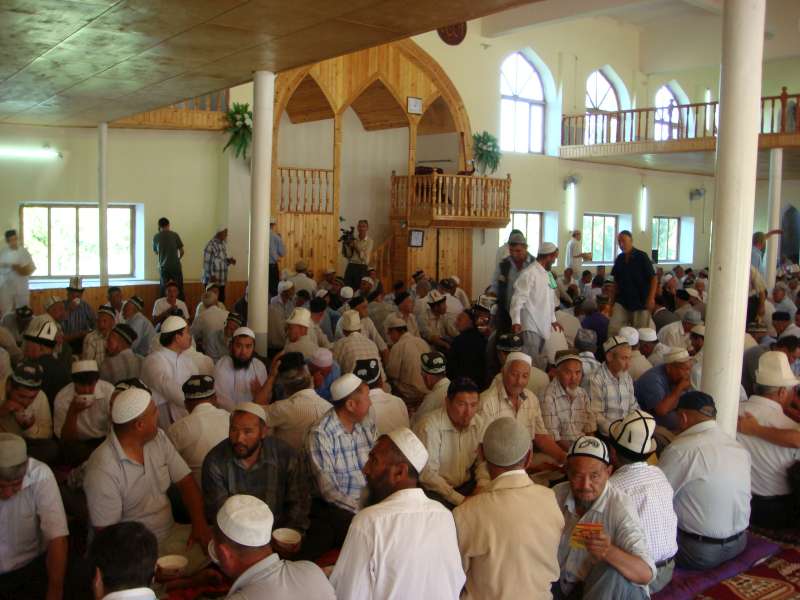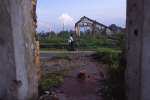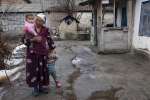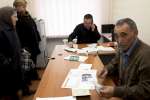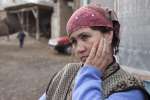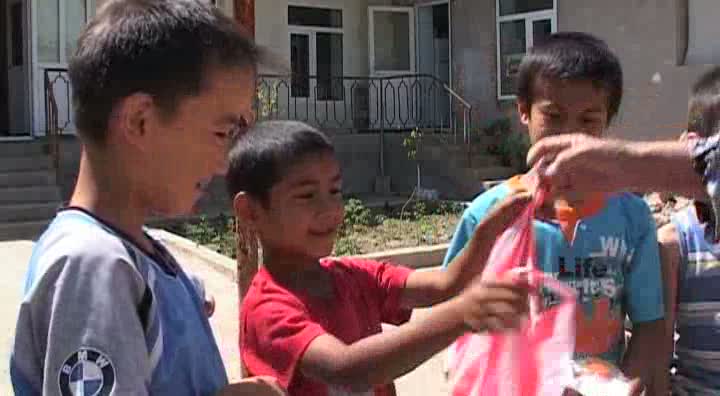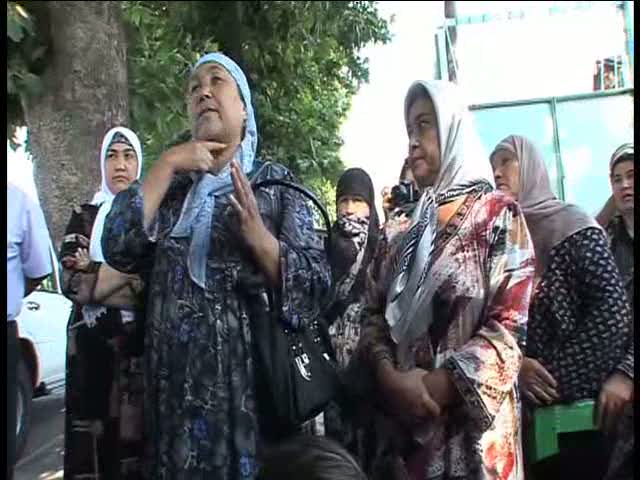- Text size
 |
|  |
|  |
| 
- Français
Uzbeks and Kyrgyz come together to commit to reconciliation
News Stories, 8 July 2010
Jalalabad, July 8 (UNHCR) – More than six hundred people gathered in a mosque near the city of Jalalabad in southern Kyrgyzstan Wednesday in an effort to promote reconciliation between Uzbek and Kyrgyz communities following a wave of violence that swept through the region last month.
Kyrgyz elders in distinctive tall white hats sat side-by-side with their Uzbek neighbours drinking tea and eating watermelon while sharing hopes for a better future. Local leaders urged forgiveness and pledged to bring the perpetrators of the violence to justice.
With only four houses burnt, the community of Suzak suffered relatively low levels of damage in the violence, which ravaged others areas of southern Kyrgyzstan in June. Villagers also offered assistance to the thousands of refugees from Jalalabad who passed through on their flight to Uzbekistan.
"People found safety in Suzak. Our people fed them and we were the centre of humanity," explained Abdumutallib Turgunbaev one of the organisers of the reconciliation meeting. "Because of that we felt we could arrange this meeting to make peace," he said.
Turgunbaev hoped the meeting would be the start of a wider effort to promote peace across the country. "We want to show unity and humanity. We want this not to stop. We want for other districts and regions all over Kyrgyzstan to be together, to come together, to eat together and to make peace," he said.
Addressing the meeting, the Governor of Jalalabad, Bektur Asanov, assured both communities that the authorities were working hard to catch and punish those who carried out the violence.
"We, the authorities, accept that we have some guilt in this but at the same time every citizen of the Krygyz Republic should accept his or her guilt because we weren't able to stop these provocations and as a result more than 50 people in Jalalabad died," said Asanov. "We hope this tragedy will never happen again. We should learn from our failures and mistakes," he said.
One Uzbek participant, a director of a local school, said the meeting was an important bridge between the two groups and that "the friendship would be better after this event. "We must have a similar meeting in every district of Jalalabad and Osh," said Rukhman Nisarmedin.
One possible step towards reconciliation, he suggested, would be to for ID cards and passports to no longer indicate the owner's ethnicity. "It should just say citizens of Kyrgyz Republic and not if you are Uzbek or Kyrgyz," he said.
A retired Kyrgyz civil servant said he was attending the meeting as a representative of a nearby village council. At the height of the clashes Azam Niazbayev and other former government employees came together to prevent the spread of the violence.
"The representatives of our group are here today to send the message that we have been living together with the Uzbeks. We have one market where we go to buy and sell and we want to encourage those Uzbeks who are still afraid to come back to the market," he said.
"We plead with them to come and to live in peace together again," he said.
By Ariane Rummery, Jalalabad, Kyrgyzstan
